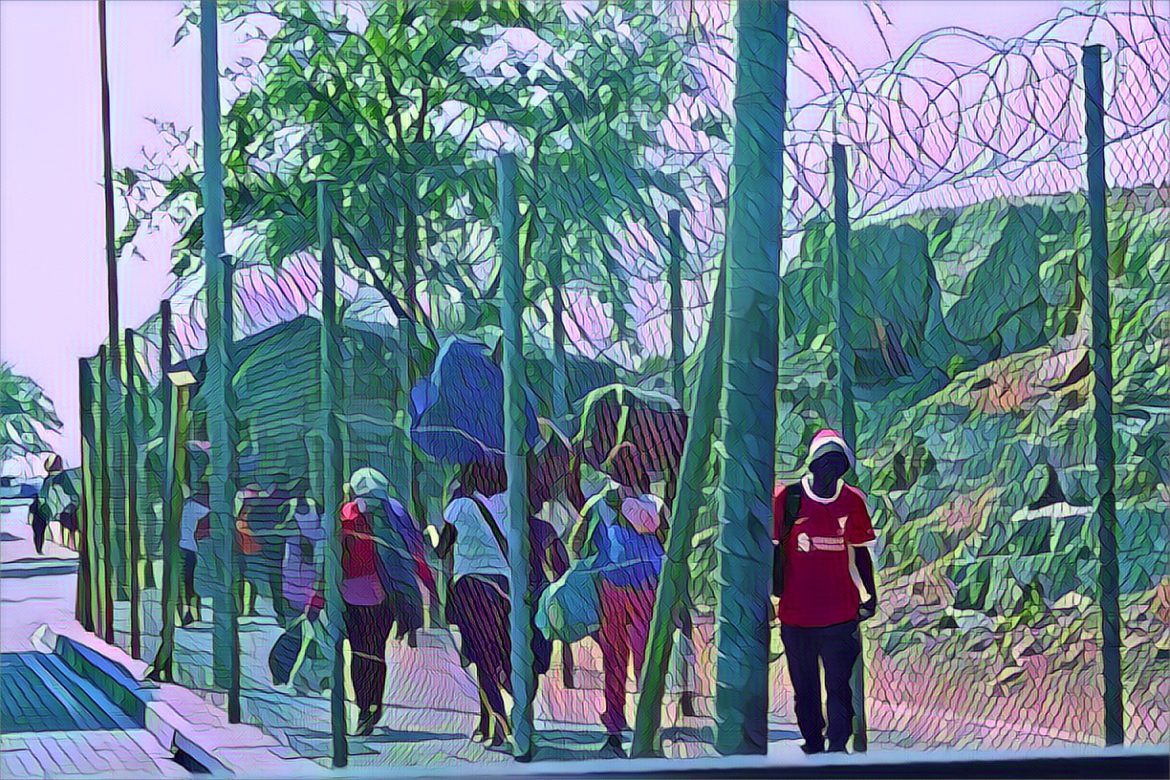South Africa is tightening its border security to stop the influx of unaccompanied Zimbabwean children. These children are mostly coming to visit their parents who work and live in South Africa.
The South African Border Management Authority (BMA) said it intercepted 42 buses from Zimbabwe between 2 and 3 December. Among the passengers were 443 children under the age of eight who were traveling without proper documents.
Based on a report by New Zimbabwe, the BMA claimed the children were being trafficked and said it has intensified its operations to prevent this kind of reality. But the Zimbabwean Ministry of Home Affairs denied any such incident occurred and said there was no record of buses being stopped or children being handed back.
Many Zimbabwean parents living in South Africa face significant challenges getting to see their children over the December holidays. They have to obtain passports and other documents for their children, which can be costly and time-consuming. Some parents have ZEP permits, which allow them to stay and work in South Africa, but do not guarantee their children’s entry.
As a result, many parents resort to unlawful methods to bring their children to South Africa. They pay bus companies an extra fee to smuggle the children across the border. GroundUp reporters have witnessed how children, including babies, are removed from buses and carried across the border by runners who meet buses on the other side.
Passport Crisis in Zimbabwe
The cost of passports in Zimbabwe is high: about $120USD (R2,400), compared to R600 in South Africa. In January 2024, the price is set to increase to $200USD (R4,000). This has caused a rush of passport applications before the price increases, and long lines at passport offices in Zimbabwe in recent weeks.
The Zimbabwean government has blamed the passport crisis on a shortage of foreign currency, which is needed to import the materials for passport production. The government has also accused some officials of corruption and sabotage in the passport system.
Many Zimbabweans who live and work in South Africa rely on their passports to renew their permits and avoid deportation. Some have resorted to paying bribes or using agents to get their passports faster. Others have given up hope of getting their passports and opted to stay in South Africa illegally.
A Call for Compassion
The Zimbabwean Migrants Support Network, a non-governmental organization that assists Zimbabweans living in South Africa, has called for compassion and understanding from the South African authorities. The organization said the parents who use unlawful ways to bring their children to South Africa are not human traffickers, but desperate people who want to be with their families.
The organization also urged the Zimbabwean government to address the passport crisis and provide affordable and accessible documents for its citizens. It said the passport issue is a human rights issue that affects millions of Zimbabweans.
The organization said it hopes that both governments will work together to find a lasting solution to the border challenges and facilitate the free movement of people between the two countries.


